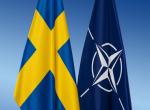US exasperation with Pakistan is mounting, with sharper warnings to it to curb the Haqqani group. The need to repeat such warnings in public also suggests a degree of helplessness in compelling Pakistan to do America’s bidding. Pakistan’s tenacious resistance, even when cornered on an issue of such vital concern to the US, flows from its calculation that it still retains enough room for defiance.
From leaked accounts of General Kayani’s briefing to the Pakistani parliament just before Hillary Clinton’s arrival in Islamabad a few days ago, this defiance is fortified by the possession of nuclear capability which should, in his view, unlike in the case of Iraq and Afghanistan, make the US think ten times before attacking Pakistani territory. In other words, the US cannot escalate the stand-off with Pakistan beyond a certain point because of the nuclear factor.
Despite their highly sensitive connotations, the remarks attributed to Kayani do not seem to have been offficially denied. Even if a denial had come, their essential purpose of cautioning the Americans against any adventurism and projecting a strong military intent after the mortifying bin Laden episode would have been served.
The US has not reacted to this nuclear posturing by Kayani, even though it would confirm the view that Pakistan has used terrorism as an instrument of state policy under the cover of its nuclear capability.
With deteriorating US-Pakistan ties and growing Congressional antipathy towards Pakistan, the US Administration may have thought it advisable to avoid any nuclear polemics at this juncture so that the relationship remains manageable. One would have thought, however, that with the existing paranoia in some Pakistani circles about US looking for an excuse to eliminate its nuclear weapons, the Pakistan Army Chief would have shown prudence in not bringing the nuclear dimension into the bickering over Pakistani reluctance to flush out the Haqqani group in North Waziristan.
More so as, despite US threats to take unilateral action against terrorists on Pakistani soil if Pakistan failed to act against them, any substantial ground action by US troops in Pakistan’s frontier areas is quite inconceivable, as that would drag it deeper into the quagmire in the region just when it intends to progressively withdraw from it militarily.
A bin Laden type raid against the Haqqani group is envisageable, but here too the US will reflect deeply on the overall cost of such action in terms of inflaming Pakistani sentiments further, humiliating the Pakistan army a second time, seriously straining the already fragile Pakistani polity and risking an interruption of the substantial cooperation that the US still receives from Pakistan not only by way of logisitics but also other bilateral arrangements involving the use of the country’s air space and bases etc for its Afghan operations.
The US nourishes deep seated fears about non-state actors obtaining access to nuclear materials for a terrorist operation directed at it, and even when the most likely source of such a danger would be Pakistan with its noxious brew of religious extremism, terrorism and clandestine nuclear proliferation, the US has directed its attention and concerns elsewhere, towards Iran, for instance. The irony is that the veiled nuclear warning to the US has come not from a non-state actor in this case, but from a state actor- the Army Chief of Pakistan.
The mixed messages that the Americans give to Pakistan, combining threats with rewards and demands with appeals, give the latter sufficient squiggle room. Hillary Clinton’s reference to Pakistan keeping snakes in the backyard in the expectation that they will bite only the neighbours is a homily the Pakistanis have heard often before.
Asking Pakistan to take action against the terrorists and safe havens in days and weeks not months and years and, at the same time, acknowledging that the US had reached out to the Haqqani group to test its “willngness and sincerity”, and that the US, Afghanistan and Pakistan are trying to put together a process that would “sequence us towards an actual negotiation” with the Taliban, is precisely the kind of half-cocked stance that the US is obliged to adopt because of the compulsions of its electorally-dictated time-table of withdrawal from Afghanistan, one that enables Pakistan to deflect pressure.
The US cannot in the same breath ask for military action by Pakistan against the Haqqanis and Pakistan’s help in negotiating with them. The broad-band nature of Clinton’s demands, extending beyond military action to greater intelligence sharing and “specific” cooperation to “squeeze” the Haqqani group, gives Pakistan political space to satisfy the US partially and buy time, without abandoning its longer term strategy. No wonder, the Pakistani Foreign Minister can stand besides the US Secretary of State and not only deny any support for safe-havens on its soil, but also cheekily advise the US to choose cooperation with Pakistan rather than any “solo flights” in the region.
That Pakistan can brandish its nuclear capability as a deterrent against any punitive action against it by the world’s foremost military power for sponsoring terrorist groups that have attacked the US Embassy in Kabul and are killing American troops in Afghanistan carries a lesson for India too, and so does Pakistan’s refusal to weed out the radical extremists from North Waziristan. Pakistan is intent on giving primacy to its long term strategic interests in the region over any obligation that it may have to combat terrorism under any international or bilateral commitment.
India can hardly expect Pakistan to deliver on its concerns about jihadi networks operating against it from Pakistani soil, if the US, with far greater capacity to punish or reward Pakistan, is unable to control its behaviour in Afghanistan. If the sustained, highly intensive dialogue between the US and Pakistan has not produced the results wanted by the Americans, no “uninterrupted and uninterruptible” India-Pakistan dialogue will produce the results wanted by India.
If America’s countless meetings with Pakistan’s Army Chief and its ISI Chief have only produced frustration, engaging the real decision makers in Pakistan by India, as some advocate, will not produce any better result. We should be more clear-sighted about the potential of our dialogue with Pakistan.
It is because we are not that we err not only in not discovering ways to capitalize on the pressure being put on Pakistan to end its terrorist affiliations, we actually release pressure on it by ill thought out and ill timed positioning. We cannot adopt a neutral position on US efforts to cajole and coerce Pakistan to cease using terrorism as an instrument of state policy- our own demand since years.
While we need not inject ourselves directly into the current US-Pakistan spat rooted in bilateral differences, how can we equate the US and Pakistan as “friendly powers”, advocate a resolution of all outstanding issues between them, as if terrorism is not an “outstanding” issue for us too, express concern that US-Pakistan tensions may affect our development and, to top it all, advocate a dialogue with Pakistan as that country “has a positive role to play in finding a solution to Afghanistan”?
If this correctly enunciates our position, it would epitomize the loss of direction of our policy towards Pakistan.
-------------------------------------------------------
Published in Mail Today 25th October - 2011









Post new comment